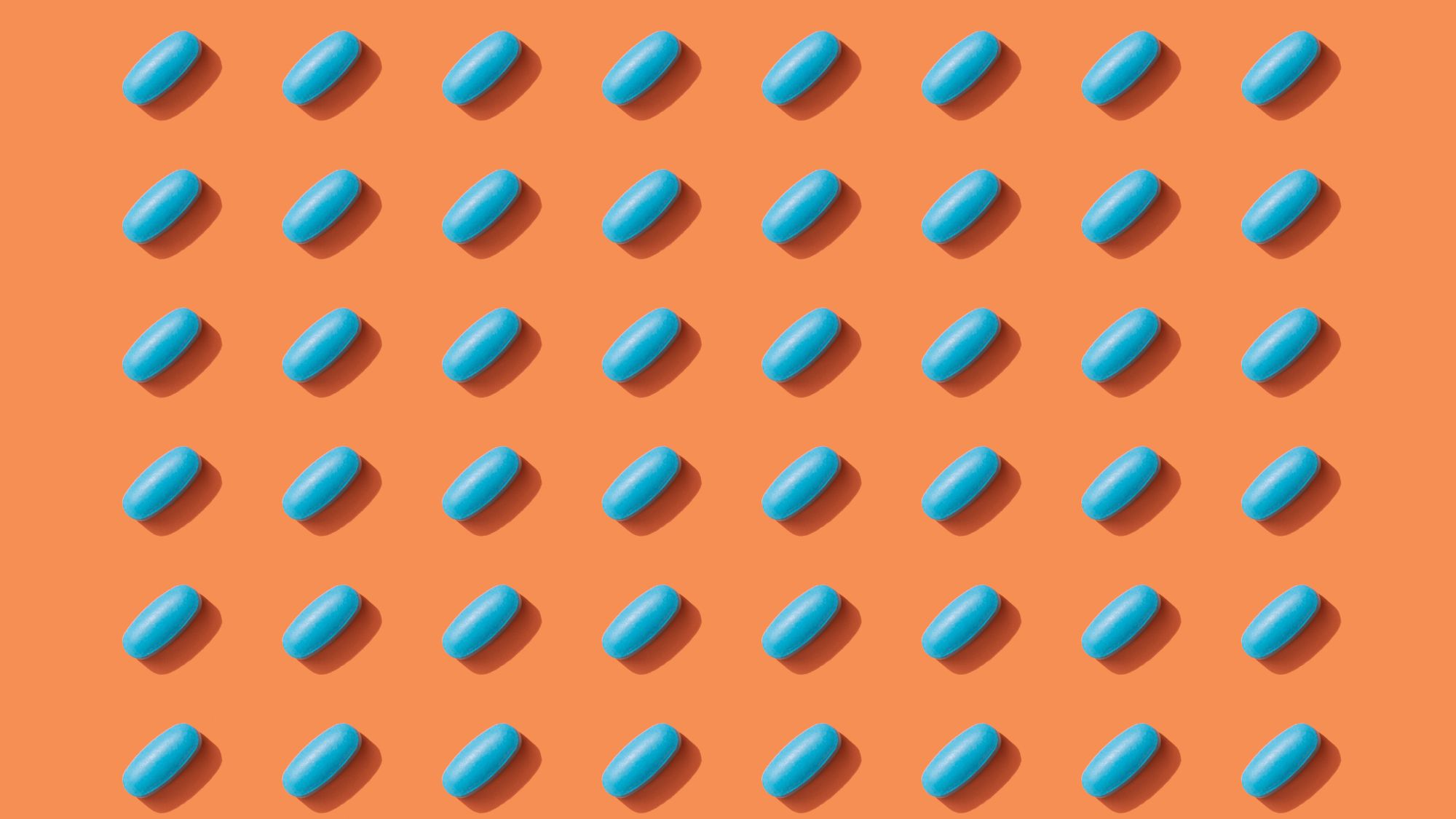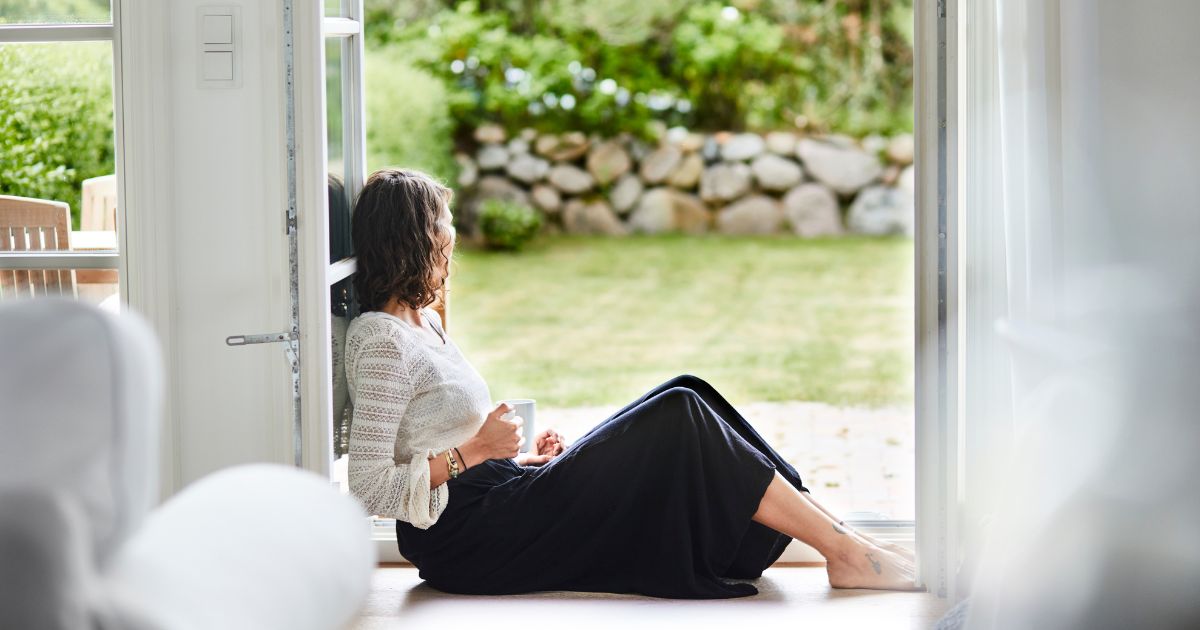Your need-to-knows about coming off the pill, including common side effects, acne flare-ups, and more
Will you get acne? Will your periods be irregular? All of your burning qs, answered.

There are a number of reasons why you might be looking into coming off the pill. Perhaps it’s negatively affecting your mood, making your periods irregular, or maybe you struggle to take it on time (yep - relatable).
Although a number of the pill’s reported downsides have been debunked – a 2011 Swedish study found that it doesn't directly cause weight gain, as many believe – it might not be the right thing for your body right now, or you may just feel it's the right time for a change.
Whether you’re taking the combined pill or progesterone-only pill, or are just considering your options (read about the different IUD types, here), this article shares expert-led advice on the most commonly asked questions about the realities of coming off the pill, including the side effects you might take, the skin issues (read: acne) you might experience, plus when you should expect your periods to return to normal.
Don't miss our guides to female hormones, the best foods for hormones, and what happened when we tried the inflammation diet for hormone balance, while you're here.
Coming off the pill: your need-to-knows
The combined pill
What are the side effects of coming off the combined pill?
While you know the contraceptive pill side effects, do you know what side effects to expect when you stop taking the pill?
First up - the combined pill. While there are a whole host of brand names for the pill, it's most commonly marketed as Microgynon, Rigevidon, Yasmin, or Cilique.
"On stopping the combined oral contraceptive – which you usually take for three weeks with one week break – your hormones return to their usual pattern and you start ovulating again or releasing an egg," says Doctor Preethi Daniel, Clinical Director of the London Doctors Clinic.
Celebrity news, beauty, fashion advice, and fascinating features, delivered straight to your inbox!
There are also changes to the lining of the womb, making it easier for a fertilised egg to latch on or implant. In other words, you could get pregnant straight away.
"As the body returns to producing hormones normally, you may notice some physical changes. The reduction in oestrogen may possibly cause a slight change in breast size. This will last for the whole time you are off the pill. Your mood and emotions can also be affected as a result of hormonal changes, but in most cases, there is no difference at all," continues Doctor Daniel.
"If you have specifically used the pill to help with PMS symptoms, they may return on stopping the pill. But every woman is different and it’s important to realise that stopping and starting pills affects everyone differently; while for some it may cause mood changes, others will be absolutely fine."
"Side effects will be transient, lasting from a few weeks to three months at best, but there are no concrete studies on the side effects of stopping the pill and how long they will last," she concludes.
If these symptoms last for longer than three months or so, check in with your doctor.
Is coming off the combined pill dangerous?
Although you may notice some pain, extreme cramping, and a swollen abdomen, there are no immediate dangers of stopping the pill, Doctor Daniel reassures.
"However, when switching from the combined pill to the mini pill, there is a small increased chance of an ectopic pregnancy," she warns.
This means if you've changed pills without adequate precautions or had unprotected sex and begun to experience abdominal pain, it's worth consulting a GP.
The progesterone-only pill
What are the side effects of coming off the progesterone-only pill?
The progesterone-only pill, otherwise known as the mini pill, is sold under a number of different brand names including Cerelle, Desogestrel, Cerazette, and Zelleta. (Note: your doctor will be able to confirm which you are taking, but if you take it for 30 days back-to-back, it’s likely to be progesterone-only).
The side effects of coming off the mini pill are pretty similar to the combined pill. "On stopping the progesterone-only pill, there are changes to the mucus in the neck of the womb, making it easier for sperm to reach the egg," Doctor Daniel says. Again, there's a chance you could get pregnant straight away.

Acne and coming off both pills
You know the common story: you've likely heard horror stories of friends or colleagues who've come off the pill and faced a year-long battle with acne, despite never having skin problems before. So, is there any truth in the rumours and will this happen to you, should you stop taking the pill?
"Pill usage declines steeply with age, from two-thirds of women aged between 20 and 24 to just 11% of women in their late 40s," explains consultant dermatologist Dr Justine Kluk. "It’s not uncommon for women who have been on the pill for several months or years to notice a flare-up of acne after discontinuation – and the reasons for this are well documented."
"Acne affects 80% of teenagers, making it a very common problem. It also affects 10 to 20% of women over 25, a figure that is definitely on the rise. So this may be a recurrence of acne in those previously affected."
But, hang on – what about if you never experienced acne before the pill? Don’t get too excited. "Acne can also start in adulthood for the first time," Doctor Kluk adds. "In any event, the time of life when acne peaks is similar to the stage at which many women decide to start the contraceptive pill."
"The combined pill is in fact a very effective acne treatment and many women will find that their blemishes improve – or even disappear – as long as they are taking it," the expert continues. "The oestrogen component appears to inhibit acne by a variety of mechanisms including reducing the production of androgens (responsible for oil production and pore-blocking), and reducing the amount of active free testosterone in the blood."
Unfortunately, because of the individual differences at play and lack of research, it’s not known exactly how many women will see a flare-up or experience their first case of acne after coming off the pill.
"The natural history of acne means that a proportion of women who take the pill will grow out of their acne while taking the combined pill and therefore won’t experience a flare-up when they stop taking it. Others, however, will find their acne recurs or appears for the first time once treatment is discontinued; which suggests the pill was masking the acne all along," they share.
In summary: your pill may have been masking your acne, acting as a form of acne treatment. Read about our fashion editor’s experience with post-pill acne – and getting rid of it – for more insight and, if you are concerned about acne returning when coming off the pill, speak to your GP or see a dermatologist to put a plan of action in place.
Doctor Kluk adds that it's worth noting some progesterone-only contraception (the mini pill, depot injection, progesterone coil or implant) can actually be acnegenic - meaning it causes acne. "Use must be discussed carefully with your GP or gynaecologist if you have a history of stubborn acne," she says.
When do periods go back to normal?
Coming off the pill means your hormones are going to be out of whack, so it’s normal for your periods not to be normal for a bit.
The NHS says your first bleed is a withdrawal bleed rather than a true period – which is the next bleed afterward – and that stress, weight, and conditions like PCOS are all contributing factors to the return of regular periods.
"Stopping the combined pill causes a fall in oestrogen, which sends a message to the brain to release other hormones, such as those which help the ovaries to produce an egg," Dr Daniel adds.
"Changes in progesterone levels cause a bleed where the lining of the womb is shed. This could mean the periods aren’t entirely “normal” for a while; they could be heavier, lighter, longer or shorter, and more painful."

How long until things settle down?
"In theory, the effect should be immediate, meaning you are able to conceive straight away," says Doctor Daniel. "But it can sometimes take up to three cycles to revert back to whatever is normal for you." Not clued up on your menstrual cycle phases? You will be after you read our guide.
In short, if you have no period for longer than three months after you stop taking your contraception, check in with your GP. And if you're trying for a baby, don’t be disheartened if you had hopes of getting pregnant straight away – but remember that it could happen.
So there you have it - your need-to-knows about coming off the pill.
Does coming off the pill affect your mood?
Short answer: it will depend on a range of factors, including what contraception you've been taking and what underlying mental health conditions you may have.
While Doctor Preethi Daniel, Clinical Director of the London Doctors Clinic explains that PMS symptoms, including anxiety and low mood, could return for three or so months after coming off the pill, she reassures that these should cease within three months.
Plus, this won't happen to everyone. "Every woman is different and it’s important to realise that stopping and starting pills affects everyone differently. While for some it may cause mood changes, others will be absolutely fine," she highlights.

Ally is Marie Claire UK's Senior Health and Sustainability Editor, a well-regarded wellness expert, nine-time marathoner, and Boston Qualifying runner.
Utilising her impressive skillset and exceptional quality of writing, she pens investigative, review and first-person pieces that consistently demonstrate flair and originality.
As well as writing, Ally manages a team of freelancers, oversees all commissioning and strategy for her pillars, and spearheads the brand's annual Women in Sport covers, interviewing and shooting the likes of Mary Earps, Millie Bright, and Ilona Maher. Shortlisted for three BSMEs and winning one in 2022, Ally lives and breathes her verticals: her eye for a story and connections within the wellness sphere are unrivalled. Follow Ally on Instagram for more.
